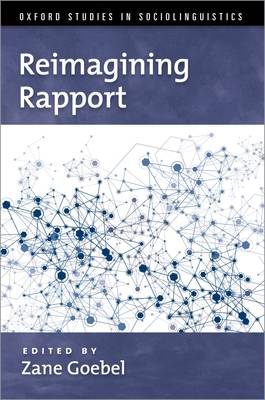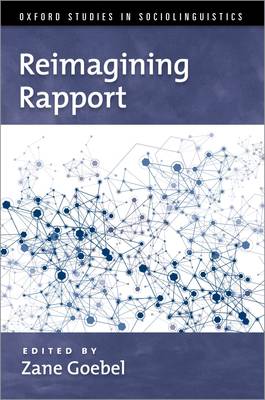
- Retrait gratuit dans votre magasin Club
- 7.000.000 titres dans notre catalogue
- Payer en toute sécurité
- Toujours un magasin près de chez vous
- Retrait gratuit dans votre magasin Club
- 7.000.0000 titres dans notre catalogue
- Payer en toute sécurité
- Toujours un magasin près de chez vous
Reimagining Rapport
78,95 €
+ 157 points
Description
To do ethnography, a researcher must have rapport with research subjects. But what is rapport? Ethnography and ethnographic methods have increasingly become a feature of social inquiry in general and sociolinguistics in particular, and rapport is generally considered a prerequisite for fieldwork. And yet, unlike related terms such as "communication" and "phatic communion," this concept has remained largely unexamined. Reimagining Rapport turns a critical eye to the use of the term "rapport" across disciplines. The collection analyzes the very idea of rapport, both exploring how it has been shaped by historical forces and actors within sociocultural anthropology, and questioning its usefulness. Rather than viewing the term as simply denoting a type of positive social relationship that needs to be formed between researcher and consultant before research can begin, this book invites us to reimagine rapport theoretically, methodologically, and meta-methodologically. Zane Goebel and other leading sociolinguists challenge readers to think about how rapport has been constructed within these disciplines, and ultimately to see rapport as an emergent, co-constructed social relationship that is actively built during situated multimodal encounters. The contributors collectively examine the role of ideology and mediation in the construction of rapport, and argue that reconceptualizing research-subject relationships is essential for establishing more sophisticated ways of understanding, interpreting, and representing research context. A valuable resource for scholars and students of sociolinguistics and linguistic anthropology--as well as for others engaged in ethnographic fieldwork--Reimagining Rapport is the first collection to provide an in-depth investigation of this critically important but previously unexamined concept.
Spécifications
Parties prenantes
- Editeur:
Contenu
- Nombre de pages :
- 208
- Langue:
- Anglais
- Collection :
Caractéristiques
- EAN:
- 9780197558744
- Date de parution :
- 05-02-21
- Format:
- Livre broché
- Format numérique:
- Trade paperback (VS)
- Dimensions :
- 155 mm x 231 mm
- Poids :
- 258 g

Les avis
Nous publions uniquement les avis qui respectent les conditions requises. Consultez nos conditions pour les avis.





